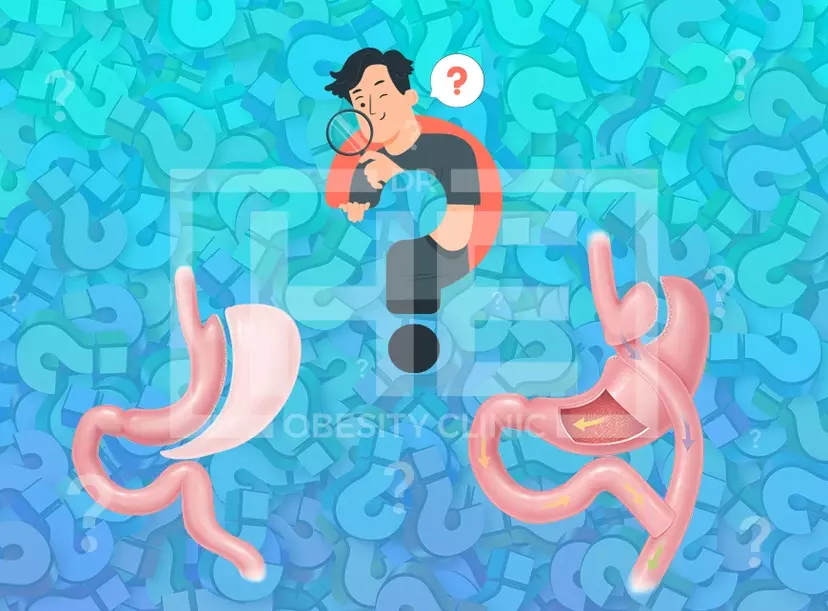Stomach Shrinking Symptoms
Stomach shrinking symptoms, shrinking stomach symptoms, symptoms of stomach shrinking, What are the symptoms of stomach shrinkage? What causes your stomach to shrink? How to understand that the stomach has become smaller? Is stomach shrinkage felt? The answers to these questions, which are on the agenda of those who want to lose weight, vary from person to person. Radical changes in eating habits allow the stomach to become accustomed to being filled with less food, thus allowing the person to feel full without overeating.
At first, situations such as a feeling of emptiness in the stomach, scratching of the stomach, and not being able to prevent the desire to overeat are considered normal. However, as a healthy and balanced diet continues, the stomach will need to eat less and begin to adapt to the new routine.
Shrinking Stomach Symptoms
Shrinking stomach symptoms; Have you ever experienced a feeling of fullness after eating just a small amount of food? Or perhaps you find yourself getting full much quicker than you used to? These could be symptoms of a shrinking stomach, a condition that can have a significant impact on your overall health and well-being.
What is a Shrinking Stomach?
The stomach is a muscular organ that expands and contracts to accommodate the food we eat. When we eat, the stomach stretches to hold the food, and as digestion takes place, it gradually returns to its normal size. However, in some cases, the stomach may lose its ability to stretch and return to its normal size, leading to a condition known as a shrinking stomach.
Symptoms of a Shrinking Stomach
The symptoms of a shrinking stomach can vary from person to person, but some common signs to look out for include:
1. Feeling full after eating small amounts of food
2. Loss of appetite
3. Bloating or discomfort after eating
4. Nausea or vomiting
5. Weight loss
6. Difficulty eating certain foods
If you experience any of these symptoms regularly, it’s important to consult with a healthcare professional for an accurate diagnosis.
Causes of a Shrinking Stomach
There are several factors that can contribute to the development of a shrinking stomach. Some of the most common causes include:
1. Gastric surgery: Certain types of gastric surgery, such as gastric bypass or sleeve gastrectomy, can lead to a reduced stomach capacity, which may result in a shrinking stomach over time.
2. Aging: As we age, the muscles and tissues in the stomach may lose their elasticity, making it more difficult for the stomach to expand and contract as it should.
3. Eating habits: Chronic overeating or consistently eating large portions can stretch the stomach beyond its normal capacity, leading to a reduced ability to return to its original size.
4. Medical conditions: Certain medical conditions, such as gastroparesis or diabetic neuropathy, can affect the function of the stomach muscles and nerves, resulting in a shrinking stomach.
Managing a Shrinking Stomach
If you suspect that you may have a shrinking stomach, there are several steps you can take to manage the condition and improve your digestive health:
1. Eat smaller, more frequent meals: Instead of consuming large meals, try eating smaller portions more often throughout the day. This can help prevent discomfort and promote better digestion.
2. Pay attention to portion sizes: Be mindful of portion sizes when eating, and avoid overeating to prevent unnecessary stretching of the stomach.
3. Stay hydrated: Drinking an adequate amount of water is essential for maintaining good digestive health. Aim to drink at least 8-10 glasses of water per day.
4. Choose nutrient-dense foods: Focus on consuming nutrient-dense foods that provide essential vitamins and minerals without overloading the stomach.
5. Seek medical advice: If you are experiencing persistent symptoms of a shrinking stomach, it’s crucial to seek medical advice from a healthcare professional. They can conduct tests to determine the underlying cause and recommend appropriate treatment options.
What is Stomach Shrinkage?
Stomach reduction is a surgical method generally performed to deal with obesity or overweight problems. This process aims to reduce the person’s stomach volume, allowing the person to eat less and feel full faster. Stomach shrinkage stands out as a treatment option that supports the weight loss process and reduces obesity-related health problems.
Stomach reduction is usually performed through two main surgical procedures:
Gastric Band Operation: In this method, a band is added that divides the stomach into two regions and creates a small pocket on the upper part. This band limits the stomach volume and causes the person to eat less. This adjustable band can be tightened or loosened as needed.
Sleeve Gastric (Sleeve Stomach Surgery): In this procedure, the stomach is greatly reduced and transformed into a tube-shaped structure. In this way, the person can eat less because the stomach volume is significantly reduced.
It is used to shrink the stomach, accelerate weight loss and reduce the effects of obesity-related diseases. However, as with any surgical intervention, these procedures carry risks and should be evaluated by a specialist healthcare team. These procedures are generally recommended for people within the limits of obesity and aim to achieve effective weight loss along with lifestyle changes.
What are the symptoms of stomach shrinkage?
Shrinking stomach symptoms; is a digestive system organ formed by muscles and can stretch and expand over time. The stomach, located in the area between the small intestine and the esophagus, has the capacity to hold approximately 4 liters of fluid. Nutrients are broken down and decomposed here.
Our stomach muscles contract approximately every 15-20 seconds. One of the most difficult to digest nutrients is fat. Constantly consuming large amounts of food at meals causes the stomach to expand and get tired, which causes weight problems. When your stomach begins to fill adequately with less food and reach a balanced capacity, this situation manifests itself with some signs.
Accordingly, the symptoms of stomach shrinkage can be listed as follows:
● You may experience sudden hiccups or abdominal cramps.
● You feel more full. You feel hungry at longer intervals rather than as often.
● Your desire to eat decreases.
● Midenizde hafiflik ve rahatlama hissi oluşur. You will notice that you do not have as much difficulty moving as before and that there is no heaviness in the stomach and abdominal area.
● When you eat too much, your stomach starts to feel uncomfortable. Complaints such as nausea, stomach pain, bloating, and heartburn may occur.
Does Stomach Shrinkage Cause Nausea?
Does stomach shrinkage cause nausea? Some people may experience nausea after stomach reduction procedures, especially after sleeve gastrectomy surgery. However, this may not be the same for everyone and may vary from person to person. Some possible causes of nausea that may occur after a stomach shrinkage may be:
Post-Operative Adaptation: The body may be in the process of adapting to stomach reduction operations. During this process, some people may experience nausea as the stomach and digestive system try to adapt to the new routine they are used to.
Changes in Eating Habits: A person’s eating habits may change significantly after stomach reduction. Habits such as eating smaller portions and consuming meals more slowly can cause nausea.
Selection of Eatable Foods: Some foods, especially fatty, heavy and spicy foods, can cause nausea after stomach shrinkage. Therefore, it is important to eat in accordance with the recommended dietary rules after surgery.
Changes in Gastric Emptying Rate: Stomach reduction operations may affect the gastric emptying rate. This can cause food to leave the stomach faster, which can lead to nausea.
Nausea after surgery is usually temporary and may subside over time. However, it is important for people who experience such symptoms to contact their doctor and evaluate the situation. Additionally, complying with the recommended dietary rules and doctor’s recommendations in the postoperative period can help minimize such discomfort.
How to understand if the stomach is shrinking?
A stomach which is used to being constantly filled with too much food, may not be able to adapt to this immediately when a healthy diet is adopted. Although it takes at least a few weeks for the stomach to adapt to this process, if you do not change this eating style, the positive changes in your body and their reflection on your life will become permanent.
If you have decided to stop filling your stomach to the brim, so to speak, and started to follow a balanced diet program, you too may be wondering, ‘How can you tell if your stomach has shrunk?’
At this point we can say that; You will definitely feel a certain relief and lightness, as filling your stomach less than its capacity will prevent it from getting tired.
Moreover; Situations such as decreasing your need to eat and your appetite, staying full for longer, and starting to feel full by eating less can be listed as symptoms of stomach shrinkage.
The factors that play a decisive role in shrinking the stomach are both hormone levels and daily calorie amount.
If the amount of calories spent and consumed is balanced and there is no hormonal problem, the symptoms of stomach shrinkage can begin to be observed in a short time with the diet program applied. However, at this point, mistakes such as starving the body for a long time, crash dieting, and eating a single type of diet should be avoided.
However, it should be kept in mind that dieting will not be sufficient to maintain the ideal stomach structure, volume, and capacity. Because there is no doubt that everything will start over when you return to the old order. For this reason, you should not forget that you should make balanced nutrition and exercise a lifestyle, and you should always be very careful not to fill the stomach with more food than necessary to prevent it from expanding.
If you want to learn how to revise your eating and drinking habits in the most accurate way and protect your health with a nutrition program that is completely unique to you, it should not be too late to follow the guidance of an expert.




 Türkçe
Türkçe  Deutsch
Deutsch  Français
Français  Español
Español  Русский
Русский  Nederlands
Nederlands  български
български  Português
Português  Română
Română  العربية
العربية






